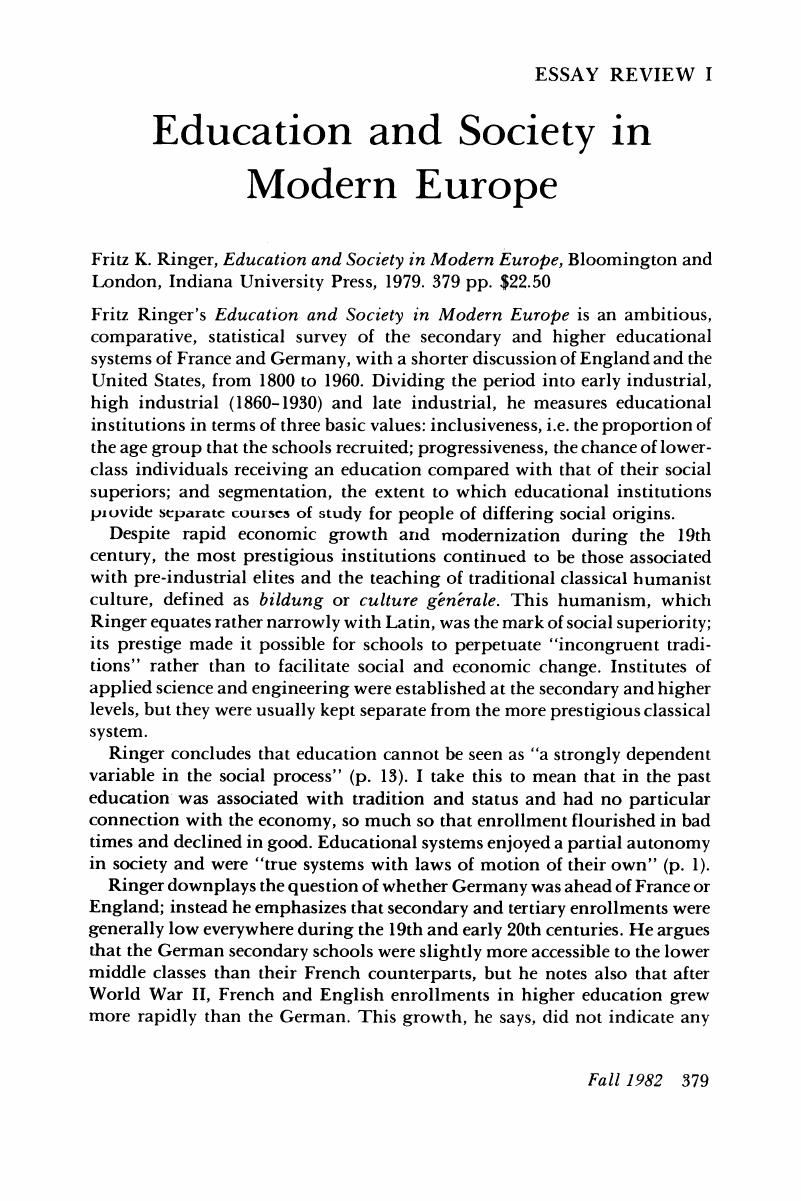No CrossRef data available.
Published online by Cambridge University Press: 24 February 2017

1. Day, C. R., “The Making of Mechanical Engineers in France: The Ecoles D'Arts et Métiers, 1803–1914,” French Historical Studies, 10 (Spring 1978):439–460, and “Technocracy or Democracy? Technical High Schools and the Question of Secondary School Reform in France, 1918–1947,” Historical Papers of the Canadian Historical Association, (Ottawa, 1981), pp. 155–166.CrossRefGoogle Scholar
2. Harrigan, P., Mobility, Elites, and Education in French Society of the Second Empire (Waterloo, Ontario, 1980); Anderson, R. D., Education in France 1848–1870 (Oxford, 1975).Google Scholar
3. Paul, Harry, “Apollo courts the Vulcans: the Applied Science Institutes in Nineteenth-Century French Science Faculties,” and Day, C. R., “Education for the Industrial World: Technical and Modern Instruction in France under the Third Republic, 1870–1914,” in Fox, Robert and Weisz, George (eds.), The Organization of Science and Technology in France 1808–1914 (Cambridge, England, 1980), pp. 127–153. On the question of segmentation, see Lundgreen, Peter, “Bildung und Besitz - Einheit oder Inkongruenz in der europaischen Sozialgeschichte?” Geschichte und Gesellschaft, 7 (1981):262–75.Google Scholar
4. Baker, D. N. and Harrigan, P. J., eds., The Making of Frenchmen: Current Directions in the History of Education in France, 1679–1979 (Waterloo, Ontario, 1980).Google Scholar
5. Weiss, John, The Making of Technological Man: The Social Origins of French Engineering Education (Cambridge, Mass., 1982).Google Scholar
6. Shinn, Terry, Savoir Scientifique & Pouvoir Social, L'Ecole Polytechnique, 1794–1914 (Paris, 1980).Google Scholar
7. Smith, R. J., The Ecole Normale Supérieure and the Third Republic (Albany, N.Y., 1982).Google Scholar